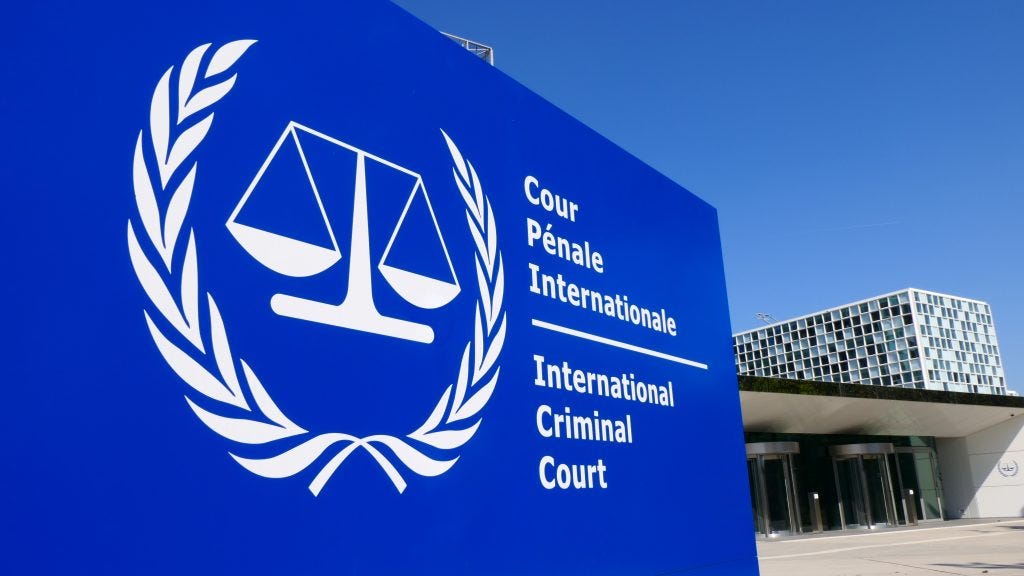Who will arrest Putin for war crimes?
Int’l Criminal Court puts its supporters to the test
For many, the fact that the International Criminal Court has put out an arrest warrant for Russian Federation President Vladimir Putin comes as no surprise.
Allegations of war crimes have been swirling around the Russian Forces that invaded Ukraine. The ICC charges announced last week – a bold move as described by some – put additional pressure on Russia and over 100 countries that have signed-on to the ICC.
Interestingly, it’s not the mass graves and widespread evidence of tortured civilians that’s put Putin in the ICC’s crosshairs, but the abduction of an estimated 16,000 children, according to Ukraine.
The Russian president, and his children’s rights commissioner, were charged with alleged responsibility for “the war crime of unlawful deportation of population (children) and that of unlawful transfer of population (children) from occupied areas of Ukraine to the Russian Federation”.

Under the terms of the treaty that the ICC is based upon, known as the Rome Statute of the International Criminal Court, all of its 123 members are now obligated to arrest President Putin. The ICC was established twenty years ago in The Hague, Netherlands, but has no police force of its own.
Despite the fact that neither Russia nor Ukraine are signatories to the ICC’s founding treaty, the Ukraine accepted the court's jurisdiction, according to ICC President Piotr Hofmansk, so any violation perpetrated on its territory falls under the purview of the International Criminal Court.

Russia fires back
Russia has not ignored the ICC’s charges, and ex-president Dmitry Medvedev has warned that any country that tries to arrest President Putin will be bombed by Russia.
As the UK’s Telegraph reports, Medvedev (once a moderate hopeful for the West), got very specific about how this scenario might play out.
"Let's imagine - it's clear that this is a situation that will never happen - but nevertheless let's imagine it does," the Putin ally said. "The current head of a nuclear state arrives on the territory of, say, Germany, and is arrested. What is this? A declaration of war against the Russian Federation."
Mr. Medvedev said that if this happened "all of our means, rockets and others, will fly on the Bundestag, in the Chancellor's Office and so on."
NATO member Hungary backs-away
The ICC’s charge might be viewed as bold at best, an over-reach at worst. It’s only its third arrest warrant for a sitting head of state, and it risks fracturing the bulwark that NATO has so carefully maintained in response to the Russian invasion of Ukraine.
NATO-member Hungary says it would not arrest Russian president Vladimir Putin if he entered the country, despite the International Criminal Court’s arrest warrant. Hungarian Prime Minister Viktor Orban’s chief of staff, Gergely Gulyas, said on Thursday that even though Hungary is a signatory to the Rome Statute, the treaty that created the ICC, and ratified it in 2001, arresting Putin would have no basis in Hungarian law, reported CNN.
All eyes on South Africa
Later this year South Africa may find itself facing the trickiest diplomatic decision of modern times: whether to arrest Vladimir Putin if he turns up for the summit of BRICS nations (Brazil – Russia – India – China, and South Africa), planned for Durban in late August. South Africa is one of 123 signatories to the International Criminal Court.
It's very unlikely that South Africa will take any action. “We must have a discussion with the Cabinet to decide how we will act," said Foreign Affairs Minister Naledi Pandor this week after confirming that Putin had been invited to his country.
Nevertheless, the ICC’s pronouncement on Putin will further isolate the Russian Federation President. How can nations committed to international norms and law continue to deal with the Russian leader with the ICC's warrant hanging over his head? It’s sure to continue to put pressure on Putin, and the ICC’s supporters who purport to stand for human rights and international law.
(Cover: KYIV, UKRAINE - Feb. 25, 2022: War of Russia against Ukraine. Child on a swing against a residential building damaged by Russian rocket in a residential area of Kyiv. Via Shutterstock)
(This article has been updated to clarify that the ICC's jurisdiction has been accepted by Ukraine, despite it not being a party to the Rome Statute)


